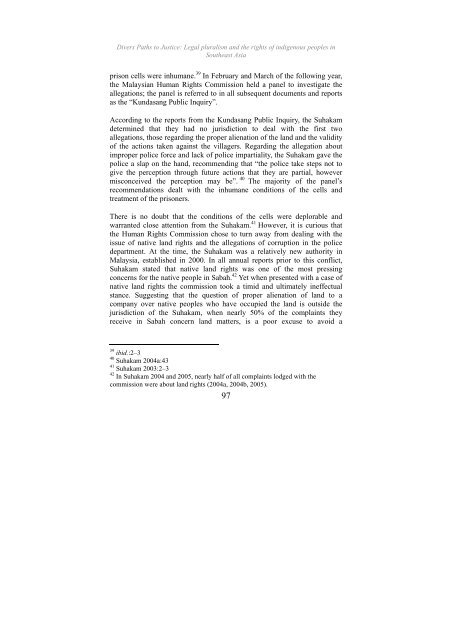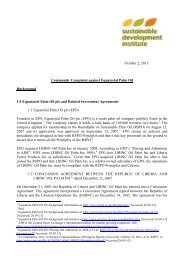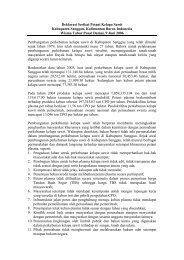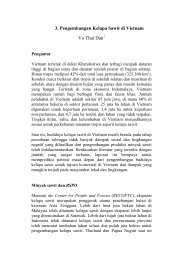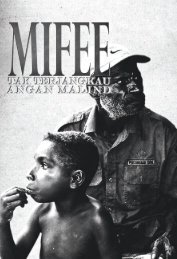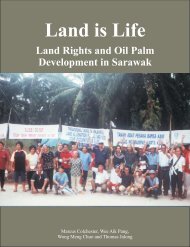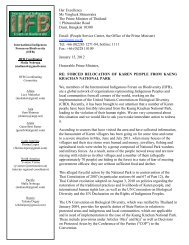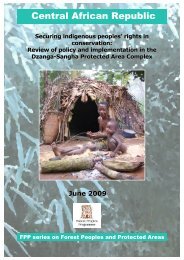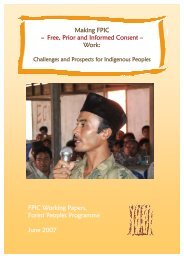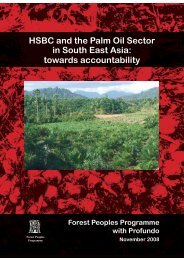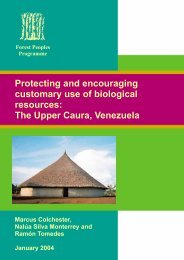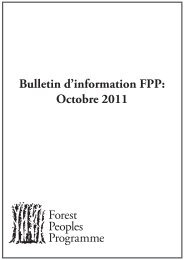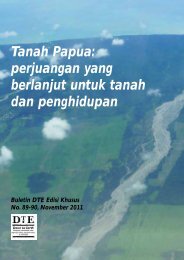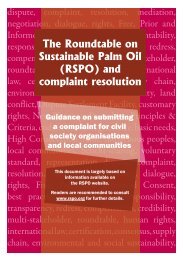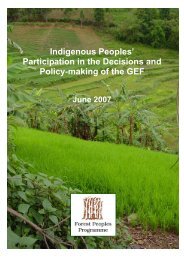Divers Paths to Justice - English - Forest Peoples Programme
Divers Paths to Justice - English - Forest Peoples Programme
Divers Paths to Justice - English - Forest Peoples Programme
You also want an ePaper? Increase the reach of your titles
YUMPU automatically turns print PDFs into web optimized ePapers that Google loves.
<strong>Divers</strong> <strong>Paths</strong> <strong>to</strong> <strong>Justice</strong>: Legal pluralism and the rights of indigenous peoples inSoutheast Asiaprison cells were inhumane. 39 In February and March of the following year,the Malaysian Human Rights Commission held a panel <strong>to</strong> investigate theallegations; the panel is referred <strong>to</strong> in all subsequent documents and reportsas the “Kundasang Public Inquiry”.According <strong>to</strong> the reports from the Kundasang Public Inquiry, the Suhakamdetermined that they had no jurisdiction <strong>to</strong> deal with the first twoallegations, those regarding the proper alienation of the land and the validityof the actions taken against the villagers. Regarding the allegation aboutimproper police force and lack of police impartiality, the Suhakam gave thepolice a slap on the hand, recommending that “the police take steps not <strong>to</strong>give the perception through future actions that they are partial, howevermisconceived the perception may be”. 40 The majority of the panel’srecommendations dealt with the inhumane conditions of the cells andtreatment of the prisoners.There is no doubt that the conditions of the cells were deplorable andwarranted close attention from the Suhakam. 41 However, it is curious thatthe Human Rights Commission chose <strong>to</strong> turn away from dealing with theissue of native land rights and the allegations of corruption in the policedepartment. At the time, the Suhakam was a relatively new authority inMalaysia, established in 2000. In all annual reports prior <strong>to</strong> this conflict,Suhakam stated that native land rights was one of the most pressingconcerns for the native people in Sabah. 42 Yet when presented with a case ofnative land rights the commission <strong>to</strong>ok a timid and ultimately ineffectualstance. Suggesting that the question of proper alienation of land <strong>to</strong> acompany over native peoples who have occupied the land is outside thejurisdiction of the Suhakam, when nearly 50% of the complaints theyreceive in Sabah concern land matters, is a poor excuse <strong>to</strong> avoid a39 ibid.:2–340 Suhakam 2004a:4341 Suhakam 2003:2–342 In Suhakam 2004 and 2005, nearly half of all complaints lodged with thecommission were about land rights (2004a, 2004b, 2005).97


